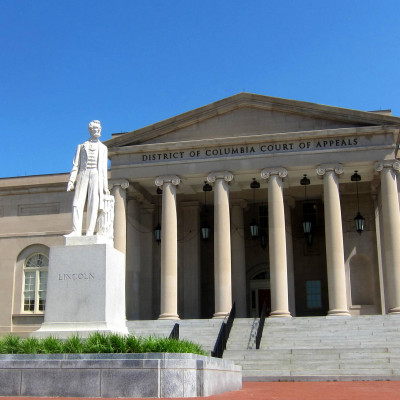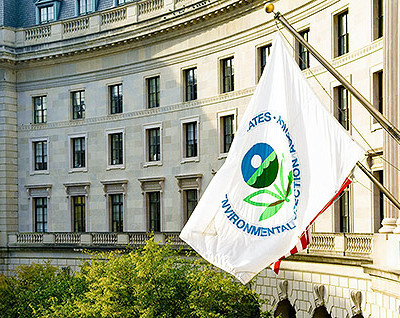April 30, 2020
April 2020 at Policy Integrity
- COVID-19 and Reduced Environmental Enforcement: New Tracking Resource
- Litigation Update: Clean Power Plan Replacement, Harmful Changes to Title X
- Concealed Costs of the Clean Water Rule Rollback
- NYU Environmental Law Journal Issue Highlights Policy Integrity’s Impacts
- Dangerous Effort to Undercut Mercury Pollution Rules
- Broadening Support for FERC to Explore Carbon Pricing
- Commentary: Climate Risk and Disclosure, Clean Cars Rollback
- Webinar: Valuing Distributed Energy Resources
- More From This Month
-

COVID-19 and Reduced Environmental Enforcement: New Tracking Resource
Amidst the ongoing public health crisis, several government agencies have announced plans to loosen or stop enforcement of key environmental laws and regulations. Our new resource tracks state and federal actions that have altered enforcement through suspended requirements, reduced monitoring, waivers, and other means.
-

Litigation Update: Clean Power Plan Replacement, Harmful Changes to Title X
Last year, the Trump administration repealed the Obama-era Clean Power Plan and put in its place the markedly weaker, deeply flawed Affordable Clean Energy rule. We filed a brief in the D.C. Circuit, highlighting three key errors in the Environmental Protection Agency’s rationale for replacing the CPP. Our brief explains how the EPA misstates regulatory precedent and legislative history while improperly disregarding substantial harms that the ACE rule will cause.
We also filed a supplemental brief in the Fourth Circuit review of the Department of Health and Human Services’ Title X “gag rule,” which prohibits funded family planning service providers from referring clients for abortion services and related healthcare. HHS provided incomplete analysis that fails to justify imposing significant costs on both patients and providers. We urged the court to affirm a district court decision blocking the rule.
-

Concealed Costs of the Clean Water Rule Rollback
Through two recent deregulatory actions, the EPA and Army Corps of Engineers have limited clean water protections to their narrowest scope in decades, depriving the public of billions of dollars in forgone benefits. We released a report detailing the analytical errors and faulty assumptions underlying the rollbacks.
-
NYU Environmental Law Journal Issue Highlights Policy Integrity’s Impacts
Our 10th anniversary conference in late 2018, Energy and Environmental Policy: The Quest for Rationality, brought together experts and policymakers from around the country. The NYU Environmental Law Journal has published a special symposium issue focused on the event and the evolving role of economics in environmental policymaking. The issue includes remarks from Gina McCarthy and other prominent conference speakers, an article by Cass Sunstein, and other insights on environmental regulation and Policy Integrity’s first decade of work.
-

Dangerous Effort to Undercut Mercury Pollution Rules
The EPA finalized a rule that will constrain future safeguards against mercury pollution and other toxic emissions from power plants, reversing its finding that it is “appropriate and necessary” to regulate these emissions. Richard Revesz wrote a piece in The Hill explaining the flaws of the agency’s one-sided approach, which no longer takes into account the enormous co-benefits that the Mercury and Air Toxics Standards provide. Our previous work on MATS includes multiple briefs, comments, and an academic article.
-

Commentary: Climate Risk and Disclosure, Clean Cars Rollback
As part of its current economic rescue efforts, the Federal Reserve tapped BlackRock to facilitate billions of dollars in purchases of securities. Madison Condon’s piece in Slate highlights growing tension: BlackRock is moving towards accounting for climate change-related financial risk in its investment strategies, but Republican senators are seeking to prohibit the firm from considering climate risk in the administration of the federal coronavirus stimulus.
Richard Revesz published a piece in Bloomberg Law about the rollback of Obama-era clean car standards, focusing on serious conceptual errors that are apparent even in the preamble of the rule. Revesz explains that the rollback, like most of the Trump administration’s previous deregulatory policies, could face defeat in the courts.
-

Broadening Support for FERC to Explore Carbon Pricing
A diverse coalition of industry groups, advocates, and other stakeholders filed a petition asking the Federal Energy Regulatory Commission to hold a technical conference on carbon pricing in wholesale electricity markets. We’ve studied and promoted this approach to carbon pricing extensively, hosting our own conference and publishing an in-depth report on the issue. We submitted comments expressing support for the petition and highlighting some of our previous work.
Sylwia Bialek’s recent piece in The Hill analyzes carbon pricing as a possible way around FERC’s controversial MOPR order. Bialek encourages states to more effectively pursue their climate goals by pushing to implement carbon pricing rules in wholesale electricity markets.
-

Webinar: Valuing Distributed Energy Resources
The question of how to compensate distributed energy resources, like solar panels and energy storage, is increasingly important for state public utility commissions and stakeholders to address. On Wednesday, May 20, Dr. Burcin Unel and Justin Gundlach will be hosting a webinar that will discuss how value stacking is a promising solution to current debates on net metering policies. Visit our event page to register. CLE credit is available.
Our relevant work on these issues includes an article in the Harvard Environmental Law Review by Richard Revesz and Unel, as well as a report on valuing DERs.
-
More From This Month
We also submitted comments on:

